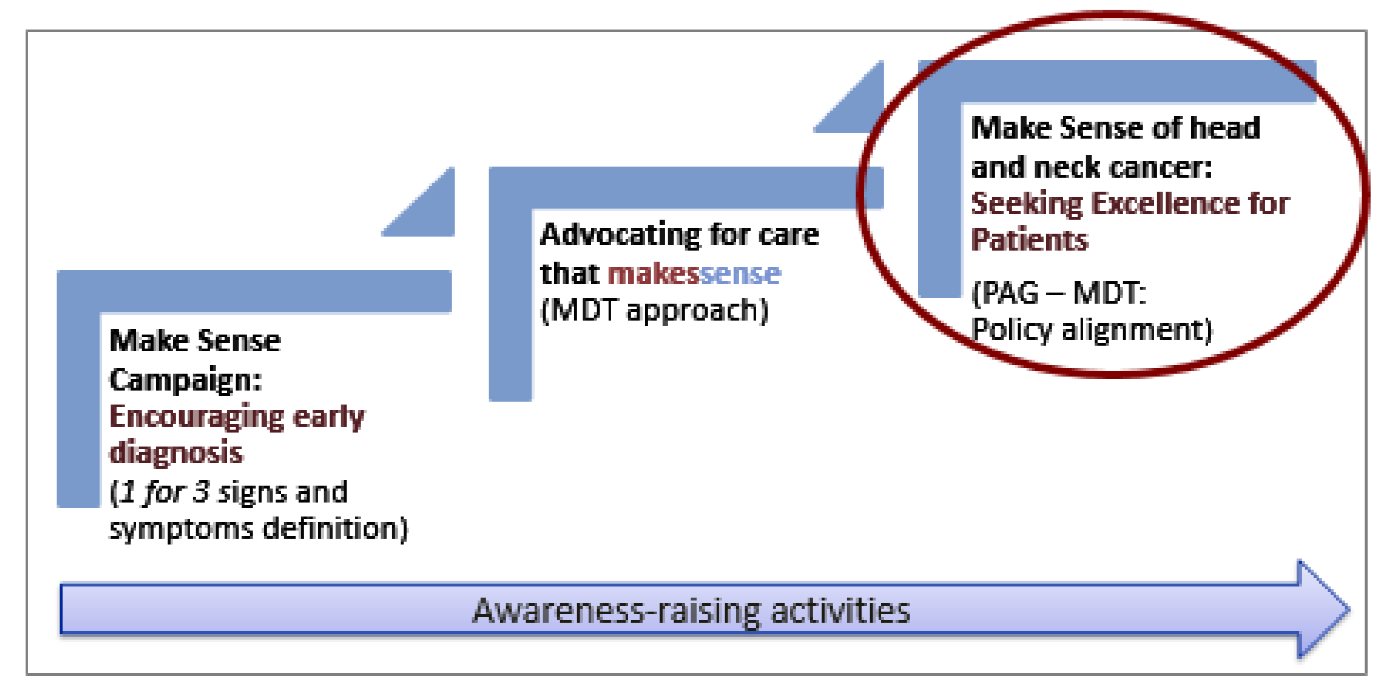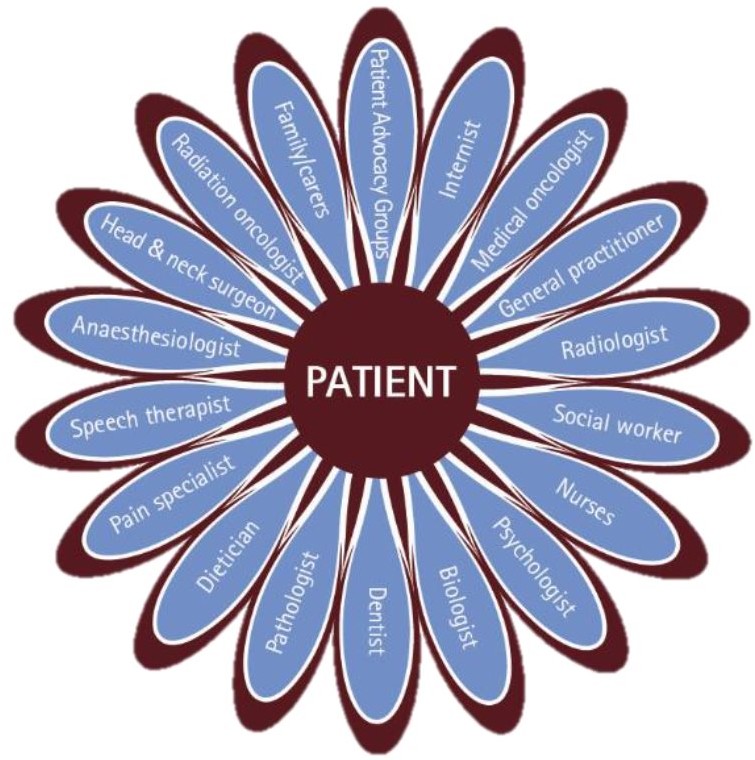Evolution of the Make Sense Campaign

The Make Sense Campaign Steering Committee recently assembled at the International Conference on Innovative Approaches in Head and Neck Oncology (ICHNO) in Nice, France, to discuss the changing environment for head and neck cancer, and the role of the Make Sense Campaign.
The Make Sense Campaign has a specific mandate to raise awareness of head and neck cancer. Each year, there is a theme to help elevate and grow the campaign: in 2013 there was a focus on early diagnosis, then in 2014 the campaign showcased the benefits of a multidisciplinary team (MDT) approach to managing the disease.
For 2015, the campaign aims to seek excellence for patients; it will do this through a multi-stakeholder programme of activities with healthcare professionals and patient advocacy representatives.

Seeking Excellence for Patients at a National Level
Ensuring people have access to the best standard of care is vital if their outcomes are to be improved. However, there is a variance in access to, and standard of, care for head and neck cancer patients across Europe. This limits some patients ability to receive optimal MDT care, surgical interventions and treatments that the EHNS believe to be gold standard.
Health economic pressures make standardisation across all countries challenging, but at a national level healthcare professionals have a duty to seek excellence for their patients.
To provide a roadmap for excellence, the current International guidelines for the management of head and neck cancer (including the ESMO guidelines) were revisited to see if there were areas of commonality that could act as a
benchmark for excellence in care for head and neck cancer patients.
The following criteria were subsequently defined, and further validated by head and neck cancer experts internationally.
Criteria for Excellence in Patient Care:
|
Seeking Excellence through Patient Advocacy
Alongside the excellence criteria, in 2015 the Make Sense Campaign will be officially broadening its reach with patient advocacy organisations in order to deepen its understanding of the support needs that people living with head and neck cancer have.
Last year, five patient advocacy groups came together to discuss initial plans for establishing an international patient advocacy network in head and neck cancer. Since then, an additional five groups have committed to
being part of the network.
They specifically want to achieve a network that will provide facilities for sharing clinical information/advances in care, best practices in clinical and emotive support and patient information materials.
All 10 patient advocacy groups will be meeting in Berlin in early June to agree a programme of activities to enable to them to forge a union as the Make Sense Campaign Patient Advocacy Network. It is envisaged that in future years for the Make Sense Campaign that this network will become integral advisors on the matters that are of highest importance to patients, and will be able to bring an even more patient-centred dimension to activities across Europe to ultimately improve patient care.
Criteria for Excellence in Patient Care:
|
Get involved!
Activities to support the aim of ‘seeking excellence for patients’ will be conducted as part of the next Make Sense Campaign Awareness Week that will take place 21– 25 September, 2015. Social media activities will play a large part in this years campaign.
To raise awareness of head and neck cancer we will be launching an online campaign encouraging people to film a 15 second silent video to the song ‘You’re the voice’ by John Farnham, with the slogan: “I am giving my voice to raise awareness for patients with head and neck cancer. I challenge X, Y, Z (name of friends) to do the same or donate”.

You can support the campaign by encouraging family, friends and colleagues to film a video and share it with their networks with the aim of reaching more people.
Additional information on how to get involved in supporting the campaign
can be found on the campaign website: www.makesensecampaign.eu
- Hits: 5745